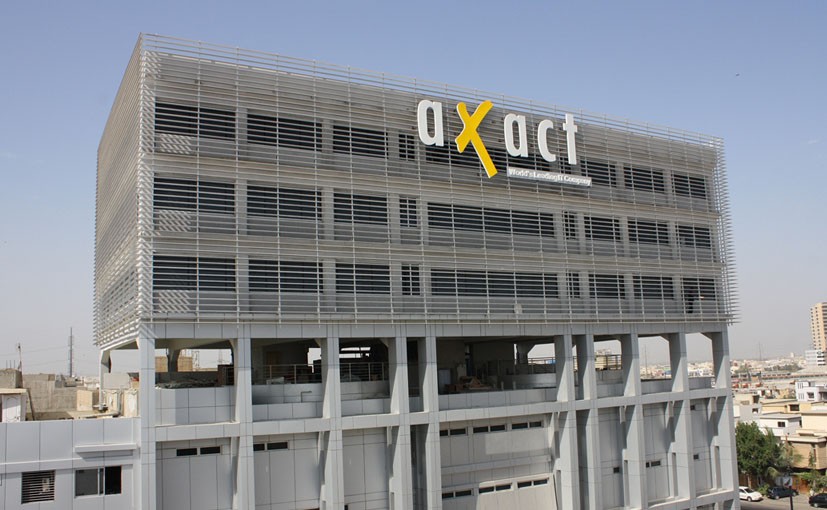

Dear all,
In terms of news, last week began on such an exciting note! Such fun to wake up to a big expose, the New York Times story revealing that the Pakistani company (Axact) ‘funding’ the much talked about new tv channel Bol was actually conducting an elaborate global scam selling fake degrees and diplomas.
The scoop by Declan Walsh (a former Guardian correspondent in Pakistan) made exciting reading as it described in detail how the alleged fraud was perpetuated -- mostly, it was claimed, through creating layers of credibility (fake websites, dodgy identities, training staff in deceitful practice and impersonation techniques).
The day the story broke, Twitter was really the place to be, not just because of the speed with which the story was covered and commented upon but also for the wonderful mix of context and humour provided by fellow Twits.
The Pakistani mainstream media took some time to catch up. The first day the tv and newspaper coverage was either non-existent or muted and the outrage really only kicked in two days later -- once it was clear the government wanted to be seen to be serious in investigating the whole matter. Also, one should add, when it became clear that no phone call from the ‘powers that be’ would be instructing journalists to ignore the story. Or maybe it was just because two days is how long it took staffers and editors to understand the NYT story.
The story is no doubt going to take many more interesting turns and twists, but one thing the initial coverage of it in Pakistan has largely sidestepped is the money laundering aspect of it. Although the group and its young executive are rumoured to be connected to a shady and notorious Indian Don, no proof has been presented to corroborate any such claims and Chinese whispers. Whatever the source of the initial investment, the NYT story reveals Axact as a company trading in fraud, selling fake education credentials, scamming individuals through a phone sales technique of intimidation, persuasion and misrepresentation.
A major strand of the Axact story is to do with the Bol News Network which was due to launch its news channel shortly. The group began with great aplomb, as a new channel started by an ‘IT’ billionaire, recruiting all the big names of tv journalism and promising great news coverage to its viewers. They brushed aside the vicious rumours that they had any sort of associations with any khaki or defence lobbies and somehow successfully convinced tv viewers and news consumers that it would be an exciting and efficient operation and would dominate the television news market.
Its advertising campaign included advertising on the roads: the bright red BOL rickshaws and vans becoming an attractive and distinctive sight across the country.
Now obviously the group’s credibilty is dented: people ask how is it that all the big name journalists joining Bol did not think to question the source of the money.
It is indeed slightly disturbing that most of Bol journalists were happy to go along with the story that the Group’s money came from its successful software business, but who can blame them when they live in an age when questioning the source of money is something that is not desirable. Money is money and as such is highly desirable so nobody is much pushed about what colour it is.
A time there was when anybody with ‘black’ money (undocumented, untaxed and largely revenue from illegal, often criminal activity) was considered a person to avoid, ostracise and generally disapprove of, but Pakistan’s US-funded Afghan mujahideen enterprise under General Zia-ul-Haq’s dictatorship completely changed all that. As the dollars poured in during the early 1980s, a lot of people became very rich, very quickly.
This inflow of wealth eroded many systems and values in the country: the money was undocumented and unquestioned, and ways of laundering it to turn it ‘white’ multiplied. Real estate firms, property developers and huge car showrooms were just a few of the businesses that mushroomed in that decade.
The money trail became less and less important. Individuals who would once question the source and colour of money now found it expedient to not do so. So what if the person buying your house was a smuggler or a racketeer? So what if the person wanting to be your new best friend made their money through human misery or exploitation? Money was money and people were happy to turn a blind eye to both its origins and its colour.
Since 1988, repeated attempts have been made to document the undeclared billions circulating in Pakistan’s economy but, unsurprisingly, they have been met with fierce resistance. Regulatory mechanisms have completely failed to keep up with private enterprise and tax evasion continues to be the norm.
So is worrying about the colour of money something to be recommended or is it just a bourgeois and middle calss affectation? Should the distinctions of halal ki kamai (good) versus haram ki kamai (bad) and the morality and legality of income dictate social attitudes? Although this may be a very old-fashioned approach, social censure can certainly be a powerful tool in controlling influence. Without this sort of censure -- or moral snobbery -- there is absolutely no barrier to money becoming the only measure of everything.
But even if society has developed a sort of collective colour blindness regarding wealth, yes, one would still expect journalists to be curious: ask questions, be nosy, follow the money trail, check out the documents. That so many of us have failed to do so reflects a terrible professional and social reality: that money can cause a terrible sort of blindness.
Best wishes